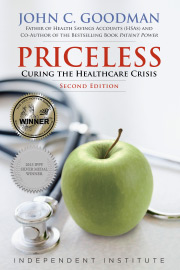They already are. For example, Social Security’s replacement rate (the benefit as a percent of pre-retirement income) falls as income rises. Also, above very modest income thresholds, 50% and then 85% of Social Security benefits are subject to ordinary income taxes. But the term “Social Security benefits tax” is misleading. Since the first threshold for a single person is $25,000, no tax is likely to be owed if the senior has only Social Security income. It is other income (wages and investment income) that most likely triggers the tax. So in a sense, the Social Security benefits tax is actually a tax on that other income.
As NCPA analysts have shown, the way the tax is applied is diabolically designed to really sock it to seniors who saved for their retirement. Over the phase out range the tax raises the senior’s marginal tax rate by 50% and then 85%. So a senior who otherwise faces a 25% marginal tax rate will face tax rates of 37.5% and 46.25% on non-Social Security income—the latter being a higher rate than Bill Gates is required to pay.
Medicare Part B premiums are also means tested and the implicit marginal tax rate over the relevant range can also be quite steep. If a senior earns $85,000 or less, the annual premium is $1,198.80. But if a senior at the top end earns $1,000 more, his premium will jump by $480—an implicit marginal tax rate of 48%! At $214,000 a senior who earns $1,000 more will face a premium hike of $840—an implicit marginal tax rate of 84%!
Furthermore, these explicit and implicit taxes are mainly taxes on saving and investment. That is they are taxes on pension income, annuities, withdrawals from IRA and 401(k) accounts, etc. As a result, this type of means testing penalizes the very activity we want to encourage—since it is precisely the activity that would make Social Security and Medicare unnecessary in the first place.
Recently, there have been calls for even more stringent means testing. In addition to all the usual suspects, Bryan Caplan has produced his own proposal. See that, plus responses from Scott Sumner and David Henderson below the fold.
The days dwindle down
To a precious few.
Here is Caplan’s proposal at EconLog:
For everyone above median income: For every percentage-point by which your income exceeds the 50th percentile, your benefit goes down by 2 percentage-points. So if you’re at the 53rd percentile, you only get 94% (=100-2*[53-50])% of the full benefit. If you’re at the 90th percentile, you only get 20% (=100-2*[90-50])* of the full benefit.
Notice that a simple back-of-the-envelope calculation says this will cut the cost of Social Security and Medicare by 25%.
Here is Scott Sumner’s response in the comments section:
I think this would be a bad idea. The numbers make no sense unless you are referring to income levels of the retired. Suppose a couple saved a million dollars during their life and turned it into a $50,000 annuity on retirement. Also suppose they earned $50,000 combined from Social Security. If the million dollar nest egg puts them in the top 10% of retirees, they lose almost all their Social Security. That’s a huge disincentive to save. And recall that the tax system already has other saving disincentives built in, so it would make the bias against saving much stronger.
Means testing is just another high implicit marginal tax on people who work hard and save.
Actually, in Scott’s example the implicit marginal tax rate on investment income would be 80%. Adding in ordinary income taxes, the marginal tax rate would exceed 100%!!!
David Henderson advances a number of arguments against means testing. But then he “cries uncle” with this comment:
I don’t want to see means-testing removed for those programs because I think my arguments I gave earlier are outweighed by the huge cost of expanding those programs greatly. I don’t have a good argument and I think you have correctly identified something that I didn’t even know was there: status quo bias.
I think there is a better way. Remember, Caplan is only trying to reduce entitlement spending by 25%. Now suppose the government offered you this deal: You can have a check today for 75% of the present value of your future Social Security benefits. This money becomes completely yours and is part of your estate. In return, you waive all claims against any additional promised benefits. Also, you will be exempted from any future Social Security “reforms,” including any new Social Security benefit taxes.
You would have to show that you won’t become destitute. You could do that by showing you have a private pension, some other government pension or substantial assets. Barring that, you may have to purchase an annuity or keep the funds in a trust that has limits on the rate of withdrawal. On the health care side, you would have to show you are covered by an employer’s post-retirement plan, by the VA system, by a public or private disability plan or that you have substantial assets. Barring that, you would have to purchase at least catastrophic coverage.
I think most people would jump at this offer. Especially the folks with above-average incomes, who know they will be the likely target of any future “reform.”
I will write more about this idea in the future.











